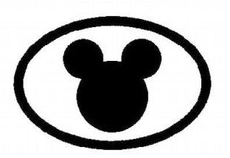Don’t Mess with the Mouse
On Saturday the House Republican Study Committee released a radical but sensible position paper on copyright that called for limiting statutory damages (which are typically far higher than actual damages), expanding fair use exceptions, punishing false copyright claims and limiting terms. The position paper included good material on how to interpret copyright law such as:
Myth: The purpose of copyright is to compensate the creator of the content:…according to the Constitution, the overriding purpose of the copyright system is to “promote the progress of science and useful arts.” In today’s terminology we may say that the purpose is to lead to maximum productivity and innovation.
This is a major distinction, because most legislative discussions on this topic, particularly during the extension of the copyright term, are not premised upon what is in the public good or what will promote the most productivity and innovation, but rather what the content creators “deserve” or are “entitled to” by virtue of their creation. This lexicon is appropriate in the realm of taxation and sometimes in the realm of trade protection, but it is inappropriate in the realm of patents and copyrights.
The paper also made a number of excellent points about how too much copyright can impede innovation and how rent seekers may come to dominate the process.
Mike Masnick and Cory Doctorow called the report “a watershed moment,” and there was lots of discussion on twitter and elsewhere about how this represented a Republican move towards recapturing youth and reasserting support for markets and innovation over business interests.
Alas, it was not to be. Within 24 hours the report was yanked. It doesn’t take much inside knowledge to guess what happened It does give me some pleasure, however, to say that you can still read the report courtesy of the Maryland Pirates.
